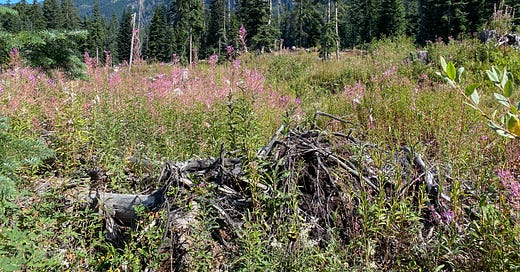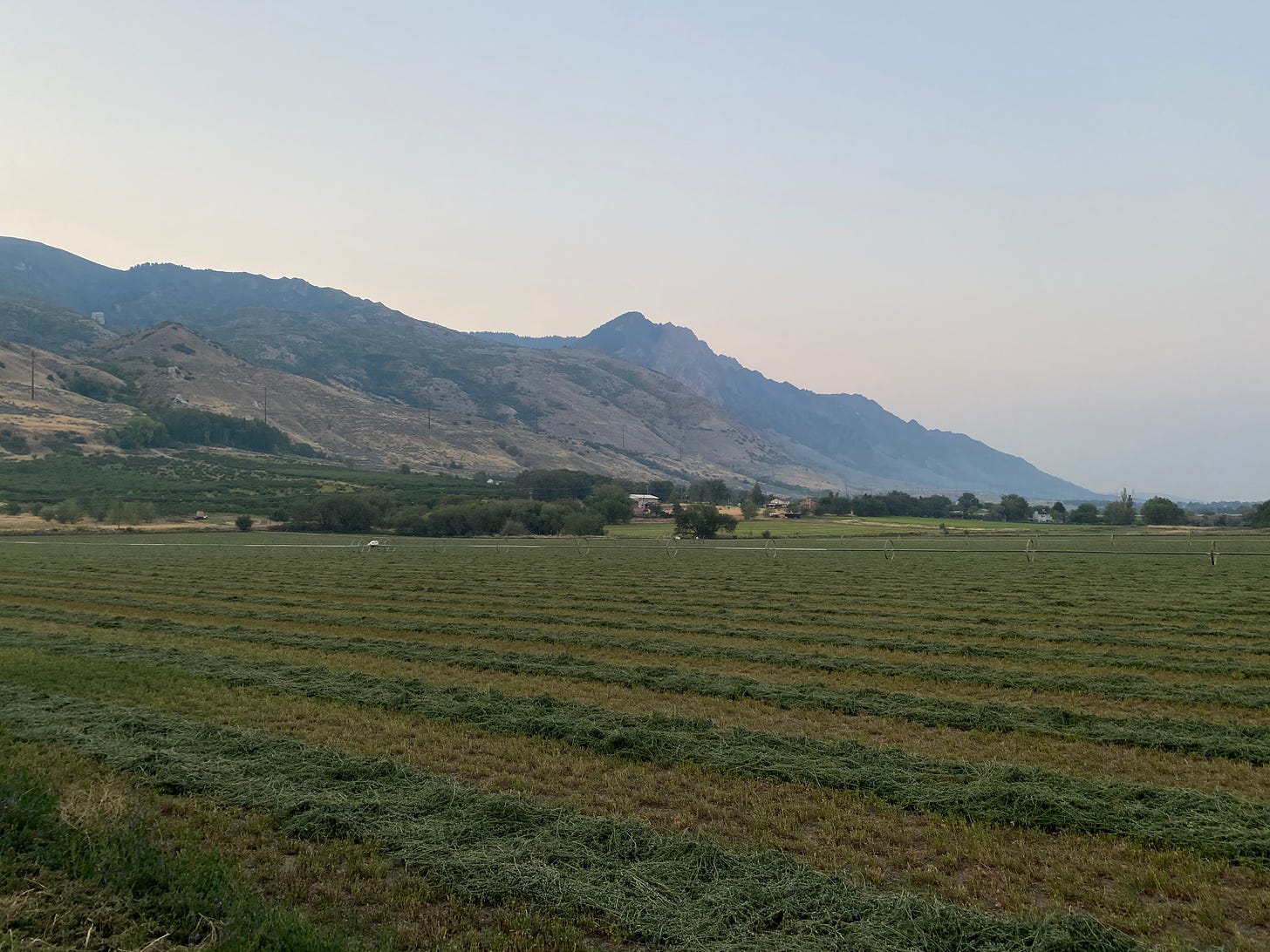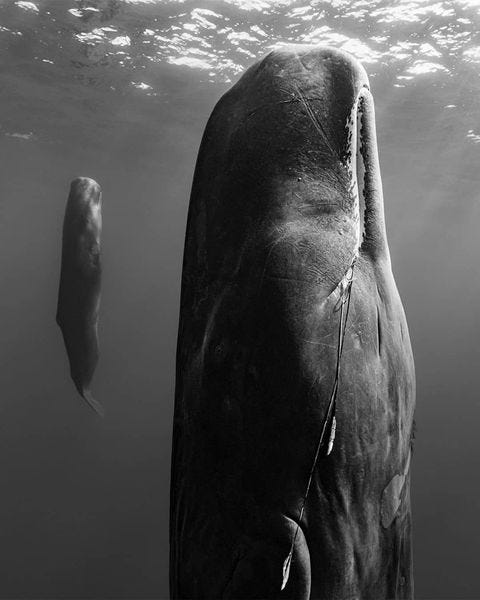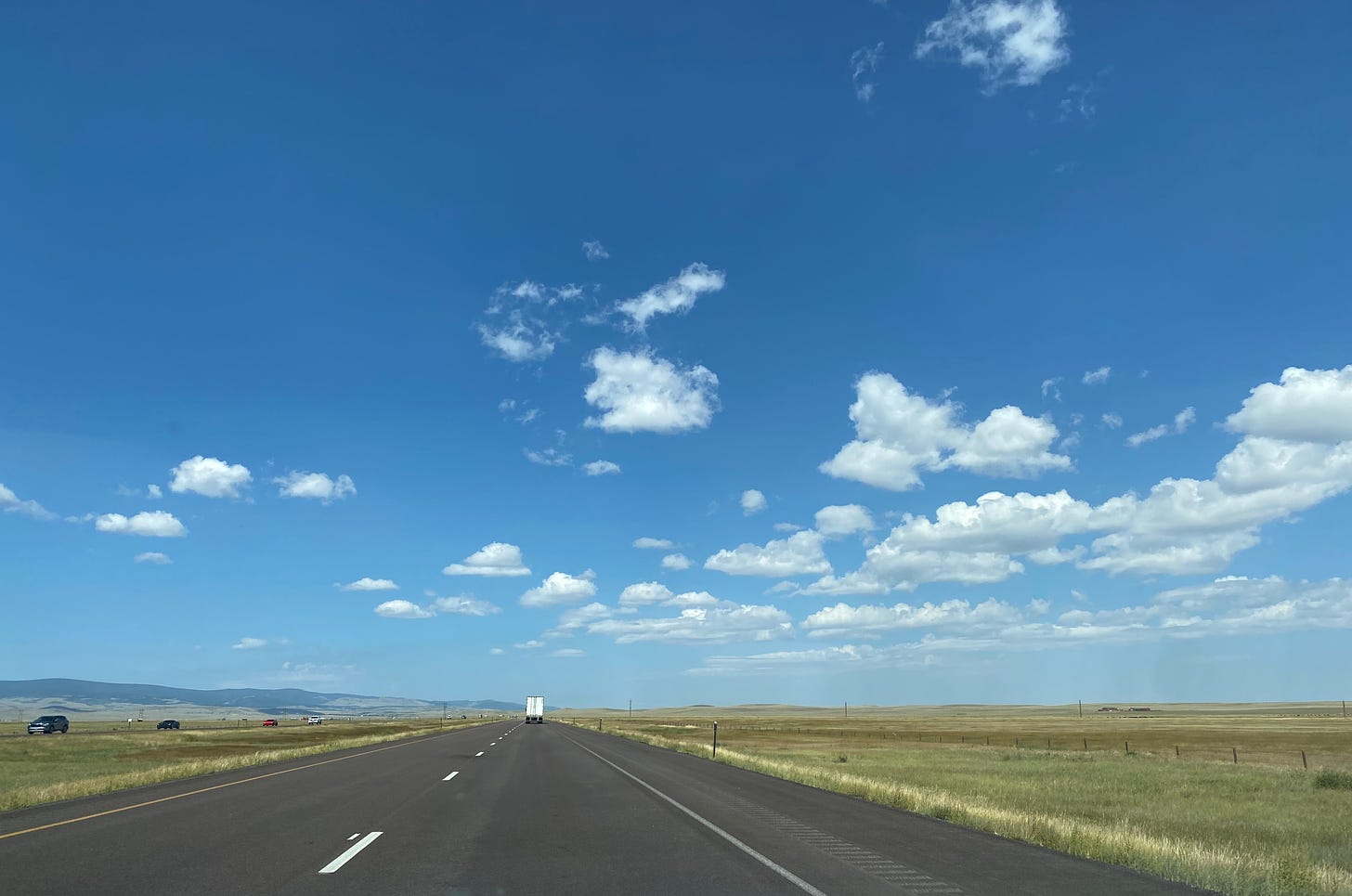On Sunday afternoon I finished up the road trip that I’ve been writing about for the past few weeks. We drove back into Seattle on a bluebird day that filled me with a sense of gratitude for the place I call home, which helped bring a sense of closure to the whole affair.
The timing, too, helped bring some closure. The trip took almost the entire month of August, which meant that it bridged much of the gap between the hottest, stillest days of summer and the delicious and pleasant days of pre-fall, when the air begins to hone its crisp edge and one’s hoodies start to look not just possible but enticing. “There comes a time when every summer will have something of autumn about it,” Major League Baseball commissioner Bart Giamatti once wrote. We are in those days now: the death of another summer and the birth of another school year imminent, and all feels sweet and sad and exhilarating.
To pass some of the long hours of driving I opted for an audiobook, Peter Heller’s The Whale Warriors, the true story of the author embedding himself on a conservation group’s mission to halt—by any means necessary—the illegal whaling of a Japanese fleet off the coast of Antarctica. I learned a lot about the illicit whaling industry, and about the conservation mission’s dogged “anti-Ahab” captain, Paul Watson, but I also learned a lot about whales. (Heller, though better known for his fiction, is certainly a thorough researcher.) More than forty million years before the arrival of the first humans on earth, whales were communicating with language systems complex enough to refer to absent third parties by name. They sing and grieve and nurture in ways few other creatures have ever been observed doing.
Heller wrote of these creatures:
They had loved the ocean, if love is a deep attention in which one does no harm.
I don’t know that that’s all that love is, but it seems like a good start. As I wrote last week my goal for the road trip itself was to make sure I was paying attention and not letting this rare opportunity pass me by in a blur of boredom and frustration.
All that said, I arrived in Denver on the fifth day of the drive home feeling like I had blacked out—the day had passed in a hot, blinding haze that remained boring and unbroken for hundreds of miles. The plains of Kansas and eastern Colorado have a soporific, mind-numbing effect.
In Denver I had a choice to make: go home the way I had been intending, north through Wyoming and then west through Montana; or to retrace the drive that my wife and I took last November after she finished up a year of work in St. Louis, northwest through Wyoming and Utah and then north through Oregon.
I chose the latter, in part because I have already driven through Montana twice this summer and in part because the highway between Denver and Billings appeared to contain very few gas stations and in part because I missed my wife, and doing our trip over again (in daylight, and without snow) made me feel closer to her.
These synchronicities of things ending, and things beginning, have meant more and more to me with each passing year. And it’s a great comfort to know that some things do not change, even as all else seems to. On my first walk with Orla back in Seattle I found to my delight that the small bunch of crows that I have befriended with offerings of kibble during the past few months still remembered me, and took up their usual spots to wait patiently for treats as I strolled past. The first few on the scene took up their usual cry to alert the others that the guy with the little magic bag was coming.
If love is a deep attention in which one does no harm, perhaps home is wherever one can return to and be recognized with joy.
As with so many things, John Prine has a song that evokes many of these very particular feelings for me. Fittingly, it’s called “Summer’s End”:
The song is about addiction and overdose, not just the turning of the seasons, but Prine was the master of melding the universal and the specific. I can scarcely imagine a more wistful, nostalgic tune, nor one more fitting for this time of year when all is making ready to change or die or be recycled.
The moon and stars hang out in bars just talking
I still love that picture of us walking
Just like that old house we thought was haunted
Summer's end came faster than we wanted
Thanks, as always, for reading. I’ll talk to you next week.
-Chuck
PS - If you liked what you read here, why not subscribe and get this newsletter delivered to your inbox each week? It’s free and always will be.







